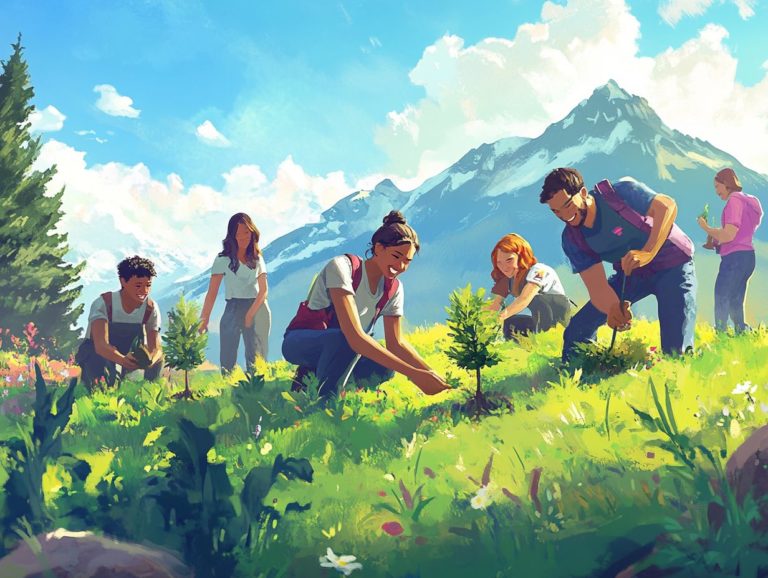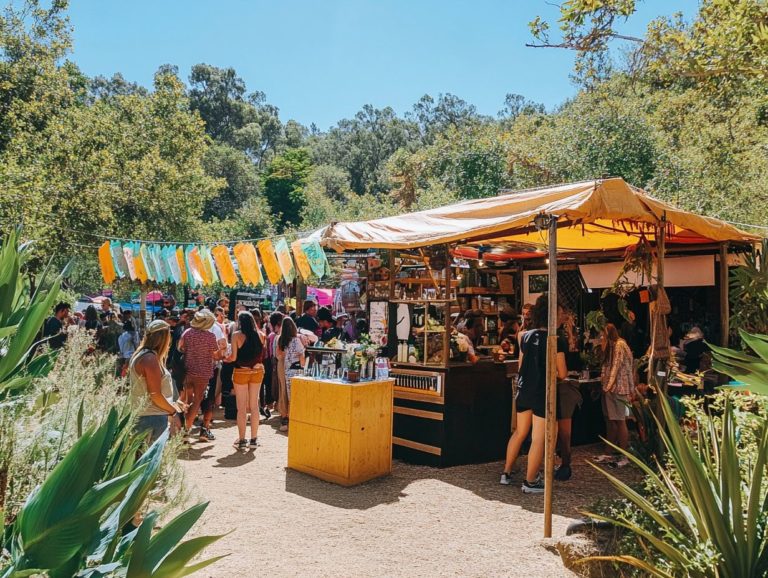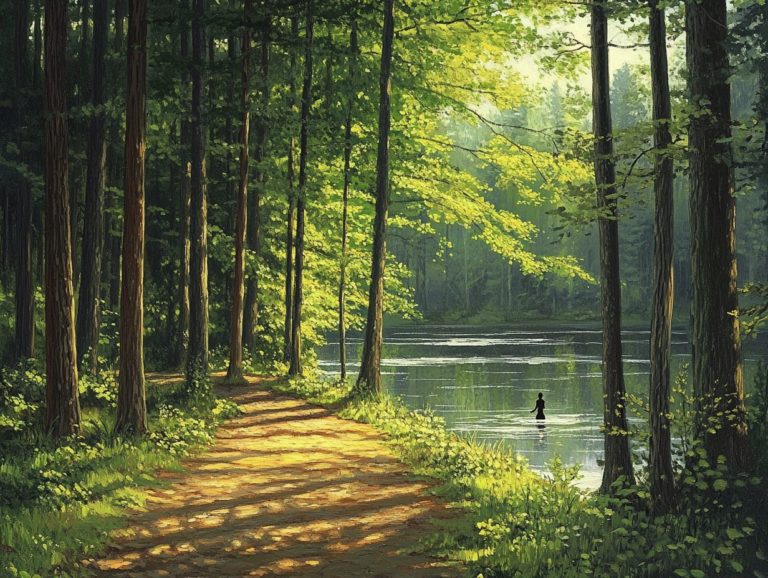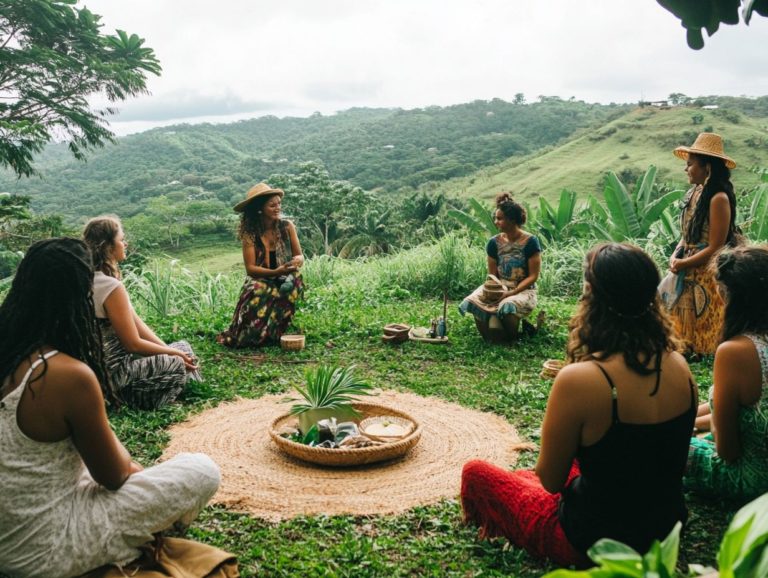5 Ways to Engage in Local Conservation Efforts
Our planet faces many environmental challenges, but together we can make a difference! Local conservation efforts are essential for protecting our natural habitats and preserving the variety of life around us.
This article delves into five impactful ways you can engage in conservation right within your community. Whether it’s volunteering with passionate organizations or taking part in citizen science projects, a wealth of opportunities await you to make a meaningful difference.
We will also highlight why it’s important to educate yourself about local issues and adopt sustainable choices in your daily life. Explore with us how you have the power to make a real difference in fostering a healthier planet!
Contents
- Key Takeaways:
- 1. Volunteer with Local Conservation Organizations
- 2. Participate in Citizen Science Projects
- 3. Support Local Conservation Initiatives and Policies
- 4. Educate Yourself and Others About Local Environmental Issues
- 5. Make Sustainable Choices in Your Daily Life
- How Can You Get Involved in Local Conservation Efforts?
- What Are Some Examples of Local Conservation Organizations?
- How Can Citizen Science Projects Help with Conservation Efforts?
- What Are Some Ways to Support Local Conservation Initiatives?
- Why Is It Important to Educate Yourself About Local Environmental Issues?
- What Are Some Simple Ways to Live More Sustainably?
- Frequently Asked Questions
- What are 5 ways I can engage in local conservation efforts?
- Why is it important to engage in local conservation efforts?
- How can I find local conservation organizations to volunteer with?
- Can I make a difference by participating in community clean-up events?
- How can I encourage my friends and family to get involved in local conservation efforts?
- Are there any specific habits I can adopt to support local conservation efforts?
Key Takeaways:
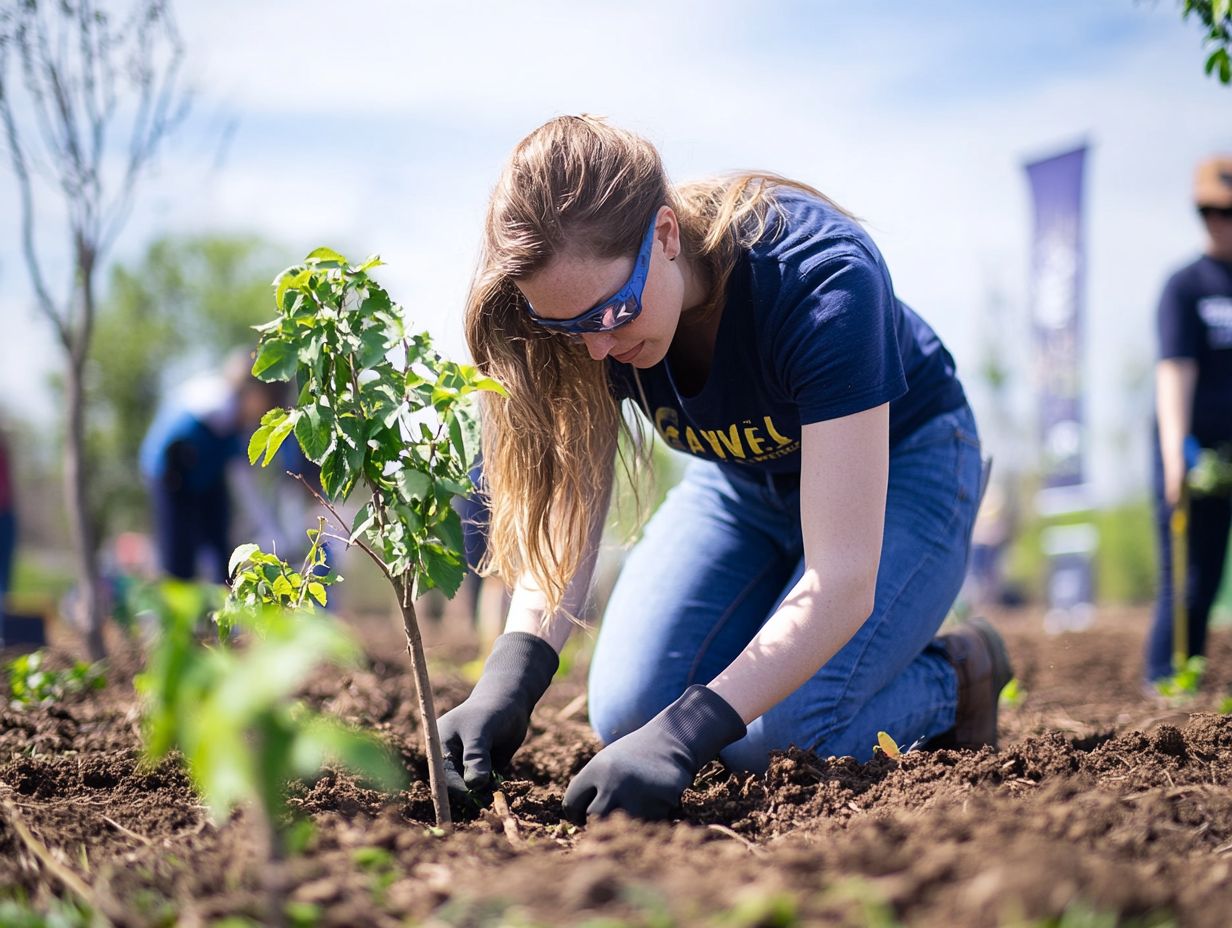
- Volunteering with local conservation organizations allows you to have a direct impact on protecting and preserving your community’s environment.
- Participating in citizen science projects helps gather important data for conservation efforts and allows you to learn and engage with your local environment.
- Supporting local conservation initiatives and policies can create lasting change for the betterment of your community and the environment.
1. Volunteer with Local Conservation Organizations
Volunteering with local conservation organizations is a proactive way for you to support the preservation of endangered species and improve the diversity of life in your community. This not only fosters a strong bond between local communities and environmental sustainability but also enriches your experience.
By engaging in clean-up campaigns and various initiatives, you contribute directly to the protection of wildlife habitats and highlight the importance of conservation efforts.
Organizations like the Nature Conservancy and local wildlife federations actively welcome volunteers for projects that range from habitat restoration to monitoring local species. These nonprofits often collaborate with community members to organize educational workshops, raising awareness about native species and their habitats.
As a volunteer, you might find yourself participating in activities like:
- Tree planting drives
- Building birdhouses
- Assisting in tracking migrating animals
Each of these efforts plays a vital role in ensuring a healthier environment. For example, many groups partner with local schools to develop programs that teach children about the significance of protecting endangered species, instilling a sense of responsibility and care for nature from a young age.
2. Participate in Citizen Science Projects
Participating in citizen science projects offers you the unique opportunity to contribute to biodiversity assessments and conservation efforts. This allows you to make a significant impact in your local community while deepening your understanding of wildlife and natural habitats.
These initiatives serve as a vital connection between scientific research and community involvement, encouraging you to immerse yourself in your natural surroundings. For instance, initiatives like the Great Backyard Bird Count invite you to observe and document various bird species, providing invaluable data to scientists studying bird populations.
Similarly, programs within national wildlife refuges enable you to monitor habitats, track wildlife movements, and engage in restoration activities. Successful examples, such as the Coastal Program’s restoration efforts, illustrate how collective action enhances ecosystem health and strengthens community ties.
Join a local conservation group today! Get involved now to help protect your community s wildlife!
3. Support Local Conservation Initiatives and Policies
Supporting local conservation initiatives and policies is essential for nurturing sustainable livelihoods and protecting the variety of life in a particular area, especially when these efforts involve collaboration with Indigenous Peoples and local communities.
When you actively engage in conservation practices, you not only safeguard your natural resources but also unlock innovative economic opportunities. Programs like eco-tourism and sustainable agriculture allow local populations to earn income while championing environmental stewardship.
By focusing on organic farming or responsible harvesting techniques, these initiatives contribute to healthier ecosystems and food systems. This empowerment cultivates a sense of ownership and responsibility, ensuring that conservation becomes a way of life that benefits everyone involved.
4. Educate Yourself and Others About Local Environmental Issues
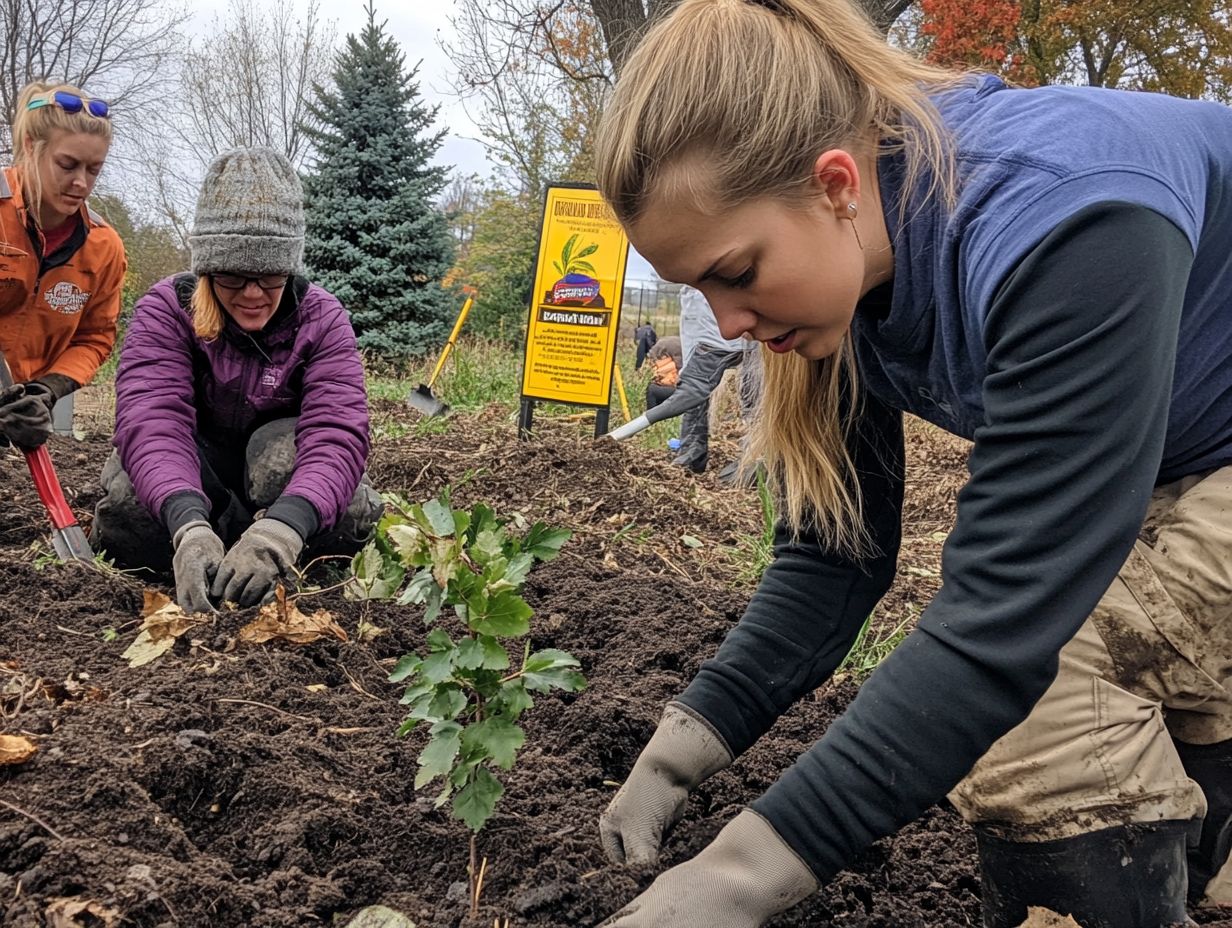
Educating yourself and others about local environmental issues is crucial for nurturing community engagement and propelling conservation efforts that align with the Aichi Biodiversity Targets. This is all in the name of protecting our invaluable ecosystems and wildlife.
You can explore various resources, such as workshops and seminars hosted by local environmental organizations, which often offer immersive experiences and valuable insights into urgent ecological challenges. There s also a wealth of online courses available, allowing you to learn at your own pace about topics ranging from biodiversity conservation to sustainable practices.
By actively participating in educational opportunities, you not only deepen your understanding but also play a vital role in promoting awareness and actionable steps toward environmental stewardship. Engaging with local conservation groups can inspire collaborative projects that aim to safeguard natural habitats and support eco-friendly tourism for generations to come.
5. Make Sustainable Choices in Your Daily Life
Your sustainable choices can make a huge difference for our local ecosystems! Consider opting for native vegetation in your backyard wildlife habitats and reducing your reliance on herbicides and pesticides.
By incorporating water conservation techniques such as utilizing rain barrels and planting drought-resistant species you can help preserve vital water resources. Embracing products made from recycled materials or organic ingredients minimizes waste and encourages better manufacturing practices.
Planting pollinator gardens filled with flowers like milkweed and clover can provide critical support for the declining bee and butterfly populations. Each of these individual actions contributes to enhancing wildlife health and fostering a thriving environment for future generations.
How Can You Get Involved in Local Conservation Efforts?
Now is the time to act! Getting involved in local conservation efforts offers a wealth of opportunities, from volunteering your time to engaging in community initiatives and supporting enterprises dedicated to preserving wildlife habitats and enhancing biodiversity.
You can explore various avenues, such as joining local organizations focused on environmental protection, attending community events that raise conservation awareness, or enrolling in educational programs geared toward sustainable practices.
For example, consider the success of community-led tree-planting initiatives; these projects have created thriving green spaces and forged stronger bonds among neighbors.
These collective efforts illustrate the tangible benefits of working together, showing how you and your community can enhance your surroundings while making a meaningful impact on local ecosystems. Join us in protecting our environment today!
What Are Some Examples of Local Conservation Organizations?
Local conservation organizations are essential for promoting biodiversity and protecting wildlife through a range of impactful initiatives. These efforts are typically led by dedicated practitioners with expertise in environmental preservation.
Organizations like the Audubon Society and the World Wildlife Fund engage in critical activities such as habitat restoration and species monitoring. They also focus on public education, involving local community members and cultivating a shared sense of responsibility for the environment.
For example, they often collaborate with schools to educate students about local ecosystems. This fosters stewardship from an early age. Exciting success stories, like the comeback of local bird populations due to habitat protection efforts, show the positive impact of these collaborations.
How Can Citizen Science Projects Help with Conservation Efforts?
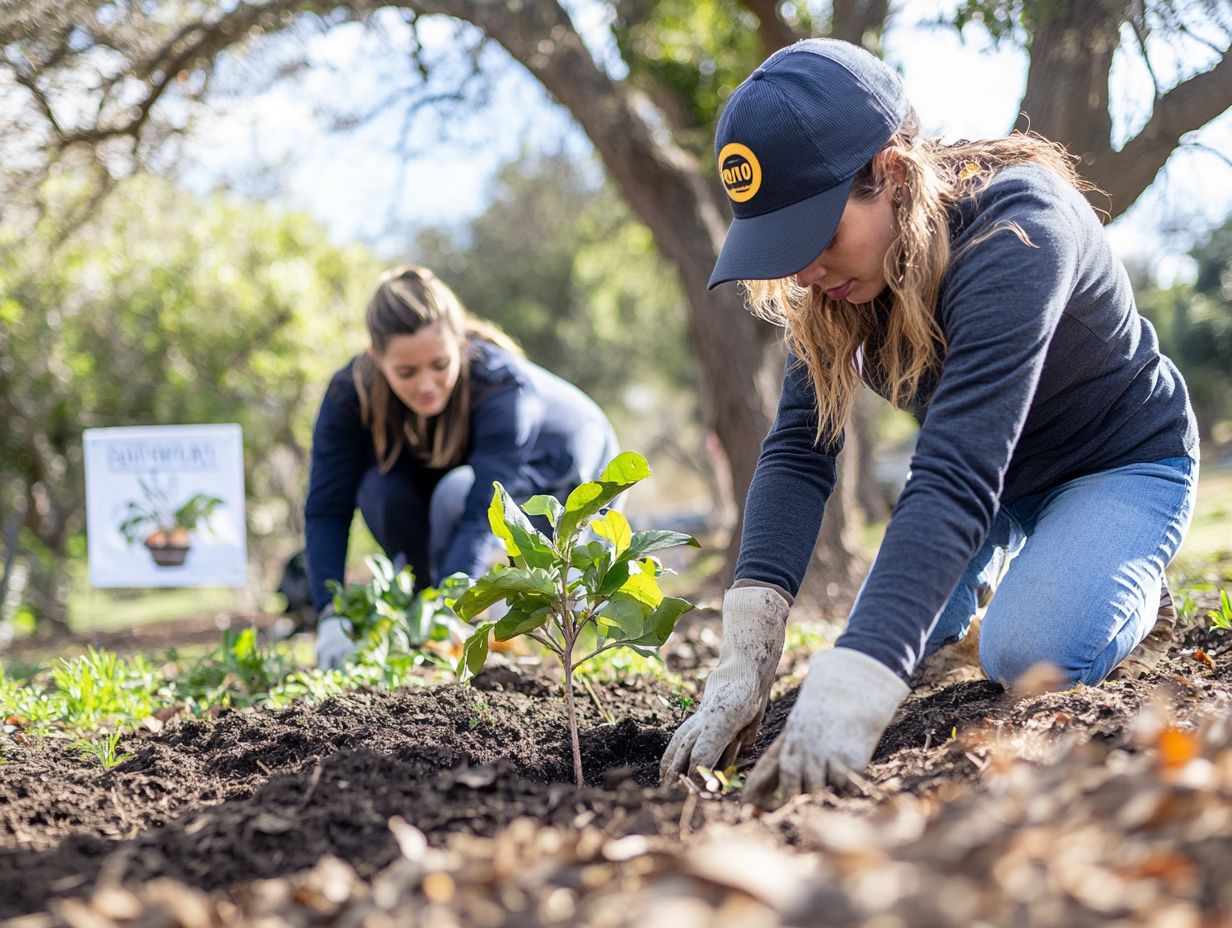
Citizen science projects invite you to join local communities in the vital work of collecting and analyzing data. This enhances conservation efforts while deepening your understanding of biodiversity and ecosystem health.
These grassroots initiatives enable you to participate actively in scientific research, transforming your role into that of a champion for your local nature. By engaging volunteers in activities like species monitoring and habitat mapping, these projects help cultivate a richer awareness of ecological issues.
Take the Audubon Society s Annual Christmas Bird Count as an example. It has mobilized thousands of birdwatchers, yielding critical data that informs avian conservation strategies throughout North America. The BioBlitz initiative encourages communities to document local species diversity, fostering a collective sense of ownership over natural resources.
Integrating local knowledge and expertise enriches data and strengthens community resilience and advocacy for conservation efforts. Join the movement today and make a real difference for our environment!
What Are Some Ways to Support Local Conservation Initiatives?
Supporting local conservation initiatives can take various impactful forms. This includes advocating for policies that safeguard ecosystems and engaging in community activities.
By attending town hall meetings, you can voice concerns and influence decision-making toward environmentally friendly policies. Volunteering for local cleanup campaigns not only beautifies your neighborhood but also fosters community responsibility. Additionally, consider engaging in local conservation projects abroad to further contribute to global environmental efforts.
Promoting educational outreach programs can elevate awareness about environmental issues. Whether you re organizing workshops or sharing valuable information on social media, your actions can inspire others to contribute to the stewardship of their local environments.
Why Is It Important to Educate Yourself About Local Environmental Issues?
Educating yourself about local environmental issues is essential for informed community engagement. This ensures that conservation strategies align effectively with broader biodiversity goals.
By understanding the unique challenges that ecosystems face, you can take meaningful actions that contribute to sustainable development and habitat preservation. Seek out local resources like workshops, seminars, and informative websites for valuable insights into environmental stewardship.
Organizations often run programs aimed at educating residents on pressing issues like pollution and habitat loss. By sharing insights through social media platforms or local gatherings, you not only spread awareness but also inspire collective action to tackle these challenges effectively.
What Are Some Simple Ways to Live More Sustainably?
Living sustainably is within your reach! It can be as simple as planting a pollinator garden, conserving water, and choosing products that are kind to the environment and local wildlife.
By adopting these practices, you minimize your impact on the environment and play a vital role in fostering a healthier planet. For instance, planting a variety of native flowers attracts essential pollinators like bees and butterflies, crucial for maintaining healthy ecosystems.
Opting for reusable items instead of single-use plastics helps cut down on landfill waste and reduces pollution. Supporting local, organic produce promotes sustainable farming and enhances biodiversity by encouraging a rich variety of crops.
These choices improve your environment and help ensure that future generations inherit a thriving ecosystem!
Frequently Asked Questions
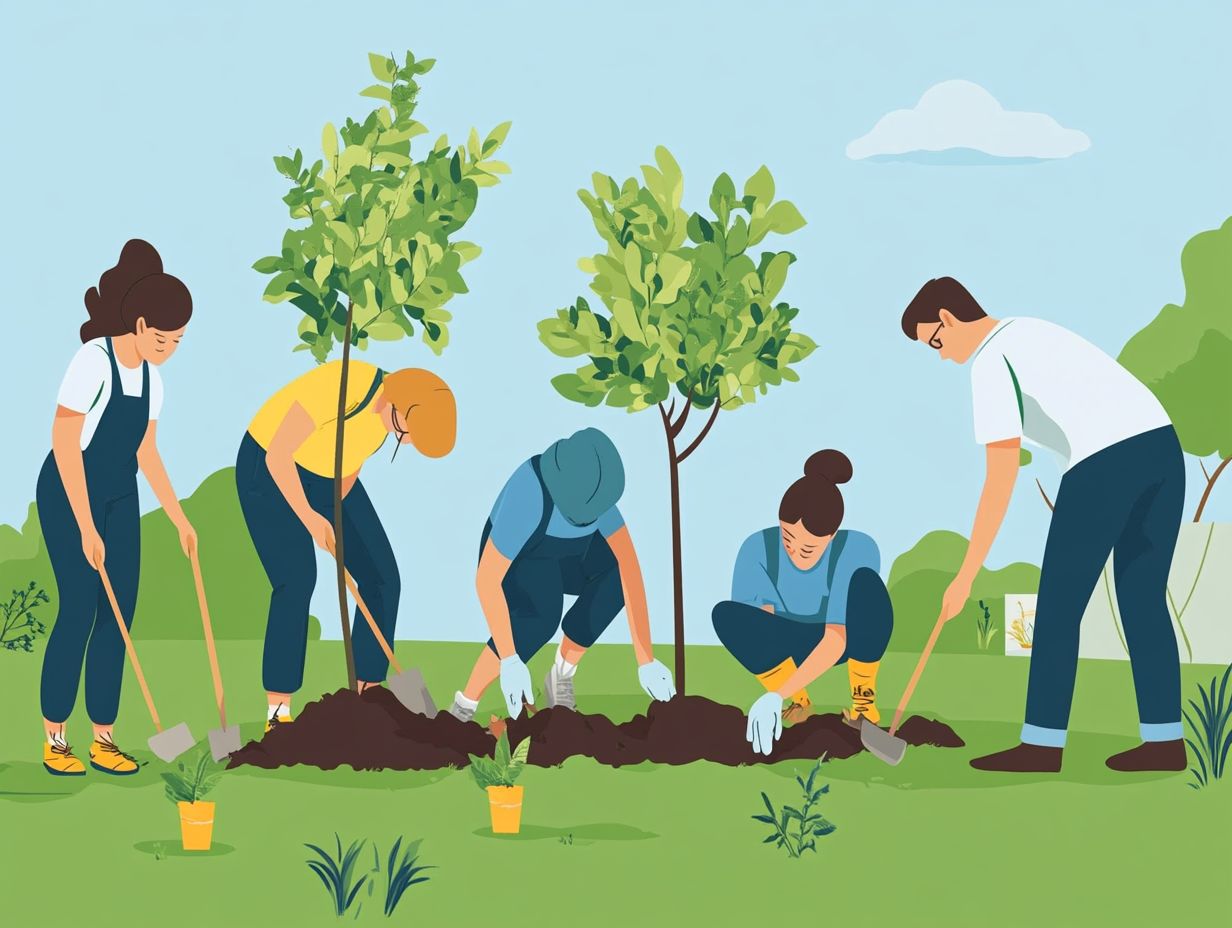
What are 5 ways I can engage in local conservation efforts?
- Volunteer with a local conservation organization: Many organizations rely on volunteers for their efforts, like cleaning up a local park or helping with a tree planting project.
- Participate in community clean-up events: Get involved in your community while keeping the environment clean!
- Support local businesses prioritizing sustainability: This supports conservation efforts in your area!
- Educate yourself and others: Stay informed about local issues and share your knowledge. Attend workshops or have conversations with friends and family.
- Practice eco-friendly habits: Small actions like reducing single-use plastics, conserving water, and using public transportation can significantly impact the environment.
Why is it important to engage in local conservation efforts?
Engaging in local conservation efforts allows you to contribute directly to protecting and preserving the environment in your community. Your actions can create a healthier, more sustainable environment for both present and future generations!
How can I find local conservation organizations to volunteer with?
Search online for local organizations, ask friends or family for recommendations, or reach out to your local government or community center. Social media can help you connect with like-minded individuals and organizations.
Can I make a difference by participating in community clean-up events?
Yes! Even small actions make a big impact. By cleaning local parks, beaches, and public spaces, you help protect wildlife, prevent pollution, and promote a cleaner environment for everyone.
How can I encourage my friends and family to get involved in local conservation efforts?
Lead by example and share your passion for conservation! Invite them to volunteer, attend community events, or practice eco-friendly habits together. Inspire them about the importance of conservation and how their actions can make a difference!
Are there any specific habits I can adopt to support local conservation efforts?
Absolutely! Incorporate eco-friendly habits into your daily routine, like reducing energy consumption, using environmentally-friendly products, supporting local farmers, and properly disposing of waste. Research and support local initiatives, such as native plant restoration or animal habitat preservation!
Start your sustainable journey today! Join a local clean-up event this weekend and make a difference!

